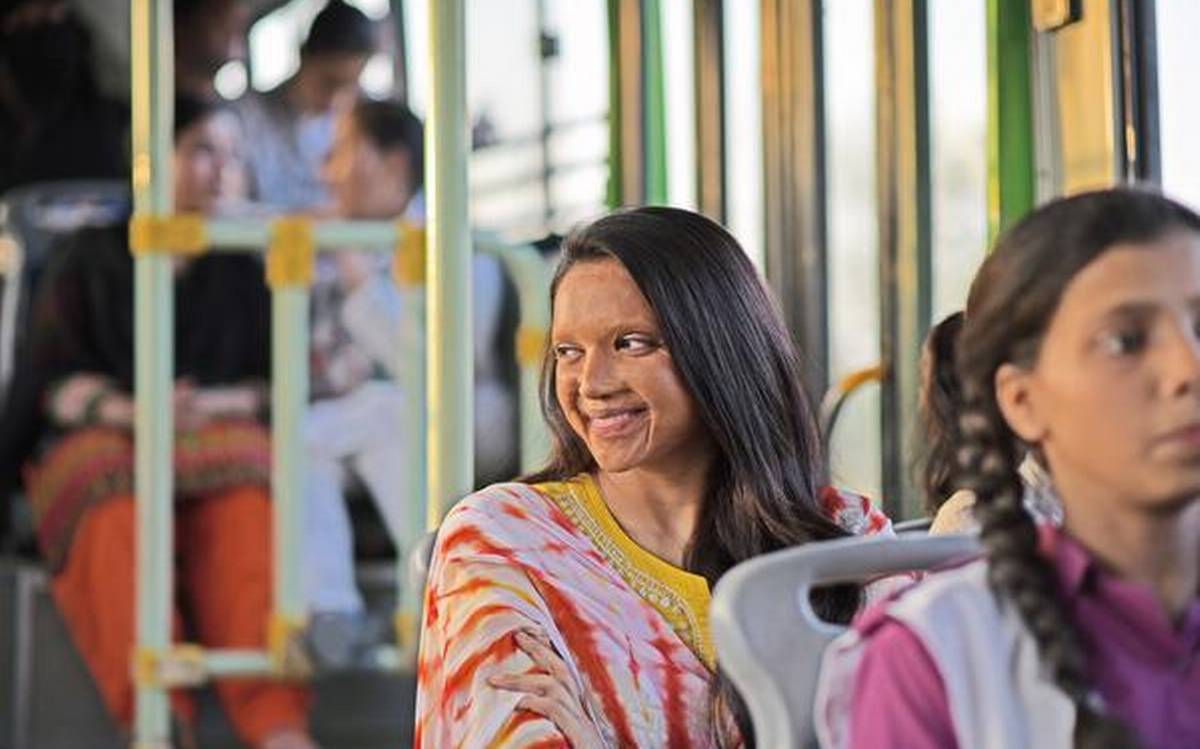Women have been attacked, raped, disfigured – by both men and women – time and again when they have tried to go beyond accepted standards of patriarchy. Women have been used as pawns during caste-based power struggles and have been humiliated to drive home the message: “Aukaat mein raho.”
Have you ever wondered why acid is thrown on the face and not elsewhere?
Pain can be inflicted in different ways. Would it not be to inflict humiliation, and the recurrence and permanence of it, each time the survivor (if she survives) looks at herself in the mirror? What does it mean when someone disfigures your face – often a marker of identity for each one of us? The sense of power of the man who does it is something needs to be understood and dismantled.
How much courage does it take to bear that struggle and those scars as one fights the world each day?
Chhapaak knows these truths, and builds from there.
The film is laced with empathy, and director Meghna Gulzar balances it all beautifully by not dramatising the content. The narrative arc of the film doesn’t let you rest – it jolts you again and again, and forces you to look gory reality in the face. All the while, it tries to instil hope that a future is possible.
Also read: When People Became Books At Ashoka University’s Human Library
The film reminds how we place so much emphasis on a woman’s physicality. The dialogues are reminiscent of everyday conversations, laced with sexism.
As I write this, the second top trend on Twitter India, is ‘Ugly’. Scrolling through, I see images of scarred women, angry women, fat women, balding women – with this hashtag. Why?
Women are constantly attacked for their physicalities – either for conforming to conventional features or choosing not to. For showing their struggle or keeping it hidden. For carrying their wounds, scars and survivor stories, or not letting it out – the criticism is constant. This vilification, however, needs more and more conversation. We need to talk about body positivity, violence, women freedoms – spatial, physical, emotional and mental – within and beyond.
Chhapaak‘s script, by writers Gulzar and Atika Chohan, examines every facet of the survivor’s life. We see her predicaments, struggles, and the little everyday things that make all the difference – everything that a subject of this depth is needed. We see what it means to have a dream; what a favourite song’s favourite lines can mean when a moment changes everything; what it means to fight a fight, purely because you are co-sufferer and a survivor; what it means to keep one’s own triggers aside to help others.
And in the face of it all, seeking and claiming happiness for yourself.
Meghna Gulzar’s empathetic direction focuses on the protagonist and her struggle without employing the usual tropes. In my opinion, it is only she who could have made such a film while keeping the nuances intact.
Also read: Where are the Female Film Directors? Right Under Our Noses
For Deepika Padukone, to produce a film of this nature, and to present herself as she has as a leading mainstream actor, is brave. One needed a strong team of empathetic women, aware of the responsibility that comes with making a film like this, to give it the shape it has taken.
A special shout out to the makers for showing us the men we want and not the men we have to deal with. Vikrant Massey is charming, Anand Tiwari is a delight, Devas Dixit is pleasing. All three are feminists, supporting women, standing by them, and often standing behind them. A father who combs his daughter’s hair better than her mother, empathetic activists fighting alongside survivors – these are the real men that are most needed today, not the toxic male characters that popular cinema has celebrated for years.
These men aren’t threatened by the idea of a woman’s freedom, success or priorities – in fact, they love women for exactly those reasons.
We desperately need more films like Chhapaak and Article 15.
These films tell us stories of the oppressed while shaming the oppressor. They tell us that the only way forward is to fight, and fight everyday. It is never an incident that needs to be fought for. It is a struggle we sign up for each day of our lives – where we battle sexism, power structures, touch and impunity. We battle it in the contexts of gender, politics, and the gender-based politics. We battle it when it even seems benign.
Because we must.
You can read more from Saumya Baijal on her blog saumyabaijal.blogspot.com.

